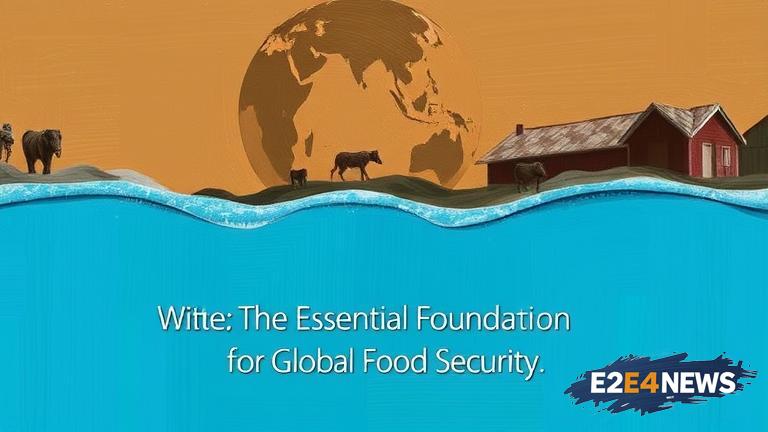Water is the cornerstone of food production, playing a vital role in agriculture, which is the largest consumer of freshwater globally. As the global population grows, the demand for food increases, putting additional pressure on already strained water resources. Climate change exacerbates this issue, with more frequent and severe droughts affecting crop yields and food availability. The editorial highlights the importance of water management in ensuring food security, emphasizing that without efficient water use, the world faces a looming food crisis. It underscores the need for sustainable practices, such as efficient irrigation systems and water recycling, to conserve this precious resource. The article also points out the interconnectedness of water and food security, noting that water scarcity in one region can have global repercussions. For instance, droughts in key agricultural regions can lead to food price volatility and shortages. The editorial calls for a coordinated approach to address water scarcity, involving governments, farmers, and consumers. It suggests that policy measures, such as water pricing and allocation strategies, can incentivize efficient water use. Additionally, investing in agricultural research and technology can help develop water-resistant crops and improve farming techniques. The article also touches on the ethical dimensions of water use, emphasizing the need to balance agricultural needs with environmental and social considerations. It warns that failure to address water scarcity could lead to food insecurity, particularly in vulnerable regions. The editorial concludes by stressing the urgency of the issue and the need for immediate action to ensure that water resources are managed sustainably for future generations. In summary, the article presents a compelling case for why water is indispensable to food security and calls for a multifaceted approach to address the challenges posed by water scarcity.
